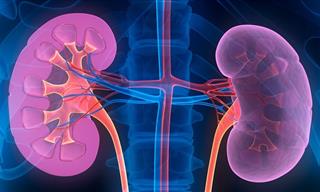1. Colchicine
Gout has long been considered a disease of the wealthy due to the fact that it tends to be caused by overindulgence in rich foods and alcohol. Famous sufferers include King Henry VIII, Thomas Jefferson, Martin Luther, Charles Darwin, and Benjamin Franklin.
The American Founding Father used Colchicum extract while serving as Ambassador to France between 1776 and 1785, introducing the drug to his fellow Americans upon his return. Colchicine is well-known for its ability to relieve pain and swelling brought on by gout, but it’s also toxic.
2. Arsenic
Arsenic is more well-known for being a poison than for anything else, however, it first rose to prominence in a medical capacity during the 18th century. It was prescribed for ailments such as syphilis and trypanosomiasis, but it has since been superseded by modern antibiotics.
British chemist James Marsh was the man to develop an irrefutable and highly sensitive chemical test for the presence of arsenic in 1836, and this led to fewer people being poisoned with it as a result!
3. Absinthe
The Swiss were the first to manufacture absinthe in the 1790s, and were also among the first Europeans to outlaw it just a century later. In the intervening years, it was made infamous by the likes of Vincent van Gogh, Monet, Picasso, Rimbaud and Oscar Wilde, who were widely known to enjoy drinking the stuff while living in France.
Absinthe made a return to the mainstream in the 1990s, when it was returned to the store shelves. In terms of its medical uses, it’s excellent for sterilizing things due to its very high alcohol content, as well as for treating various digestion problems, such as loss of appetite, an upset stomach, gallbladder disease and intestinal spasms.
4. Pure Food and Drug Act
Many of the 20th century’s best-selling medicines didn’t only claim to treat a whole range of different ailments, but actually claimed to cure them too. These include cancer, infertility, tuberculosis, epilepsy and “female complaints”, among many others.
The thing is that they became the best-selling medicines of the 20th century in the first five years of it, prior to the signing of the Pure Food and Drug Act. It was the first piece of legislation enacted to protect the public from unsafe (read quack) medications and was signed into law by US President Teddy Roosevelt in 1906.
5. Prozac
Prozac and other selective serotonin reuptake inhibitors, or SSRIs for short, are the most commonly-prescribed antidepressants in the world, despite lingering questions about how effective they actually are at combatting it. There’s also no doubting that they can cause quite a few different side effects, however, they’re safer than tricyclic antidepressants in the event of an overdose.
The 1970s and the 1980s were the two decades in which the link between serotonin (the “happy” chemical in the human brain) and depression became more apparent. This led to Prozac becoming medically approved in 1987 and marketed in 1988. The drug is often prescribed for six months or more at a time in the event of a patient being diagnosed with severe depression, and this is to allow it plenty of time to start working, and prevent relapses once the course is over.
6. Resveratrol

Although the French diet is notorious for containing a high level of saturated fats, French people actually have very low incidences of heart disease. The so-called French Paradox broke into the global consciousness following the broadcasting of a TV show named 60 Minutes back in 1991. It suggested that an ingredient contained in red wine, namely resveratrol, was responsible for protecting the heart when red wine is consumed in moderation.
Resveratrol is found in the skin of grapes and in red wine and is an antioxidant that helps to fight cell-damaging free radicals. Although animal studies have exhibited the health benefits of resveratrol convincingly, such a study has yet to be replicated in humans, however, it’s widely accepted knowledge that a glass or two of red wine per day can improve heart health.
Content source
Images by Deposit Photos.
Related Articles:
9 Things Your Pharmacist Wants You to Know
10 Tips to Help You Minimize Your Medication Expenses
How Nutritionists Treat These 10 Ailments
8 Signs You're Taking Too Much Medication
 Go to BabaMail
Go to BabaMail






























